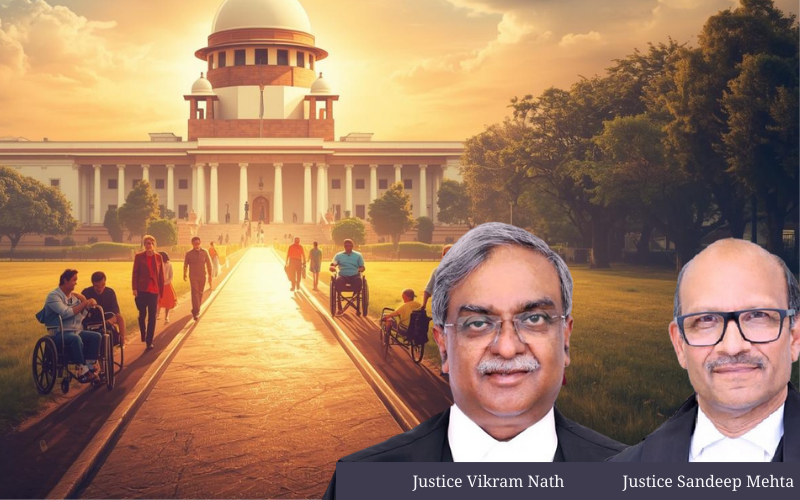Project Ability Empowerment - A New Dawn for Persons with Cognitive Disabilities
The Supreme Court, in a judgment dated September 12, 2025, addressed the pressing need for systematic reform and monitoring of state-run care institutions housing persons with cognitive disabilities. The case, Reena Banerjee v. Government of NCT of Delhi, has set a significant precedent in advancing the rights and dignities of persons with disabilities, reinforcing the constitutional ideals of equality, dignity, and inclusivity.
Background of the Case
The litigation stemmed from two petitions - a writ petition and a civil appeal - highlighting the systemic barriers faced by persons with disabilities. These petitions sought the implementation of statutory safeguards under the Rights of Persons with Disabilities Act, 2016 (RPwD Act), and the Mental Healthcare Act, 2017. The case underscored the grave conditions in state-run institutions like Asha Kiran, a care home for persons with cognitive disabilities, revealing issues such as overcrowding, inadequate healthcare, and abuse.
The Supreme Court's Directives
The Supreme Court, recognizing the need for comprehensive oversight, directed the establishment of "Project Ability Empowerment." This initiative involves eight National Law Universities, assigned to monitor state-run care institutions across various regions. The project aims to ensure compliance with legal mandates and improve the living conditions and dignity of residents.
Key directives include:
1. Resident Profiling and Care Planning: Institutions must undertake comprehensive mapping of residents to develop individual care plans, facilitating better care and potential reintegration into the community.
2. Infrastructure and Accessibility Audit: A detailed assessment of the physical environment and accessibility standards of institutions to ensure compliance with the RPwD Act and the Mental Healthcare Act.
3. Educational and Vocational Opportunities: Evaluation of the availability and quality of educational and vocational training programs for residents, ensuring their right to education and skill development.
4. Rights and Protection Mechanisms: Institutions must implement robust grievance redressal systems and ensure residents are aware of their rights, with mechanisms in place to address complaints of abuse or neglect.
5. Institutional Accountability: Monitoring teams must assess staffing, resource availability, and compliance with legal mandates, ensuring transparency and accountability in institutional operations.
Implications of the Judgment
This judgment is a significant step towards transforming the landscape of disability rights in India. By mandating a nationwide monitoring project and setting clear guidelines for institutional reform, the Supreme Court has reinforced the constitutional vision of an inclusive society. The emphasis on community-based alternatives and the recognition of disability as a legitimate part of human diversity are pivotal in dismantling systemic barriers and fostering a more equitable society.
Conclusion
The Supreme Court's decision in Reena Banerjee v. Government of NCT of Delhi marks a crucial advancement in the fight for disability rights in India. Through "Project Ability Empowerment," the judgment aims to ensure that state-run institutions not only comply with statutory mandates but also uphold the dignity, autonomy, and equality of persons with disabilities. This landmark ruling serves as a beacon of hope for a more inclusive future, where every individual, regardless of their abilities, is recognized as an equal participant in the nation's civic, cultural, and economic life.
Reena Banerjee v. Government of NCT of Delhi, (SC) : Law Finder Doc id 2777516




